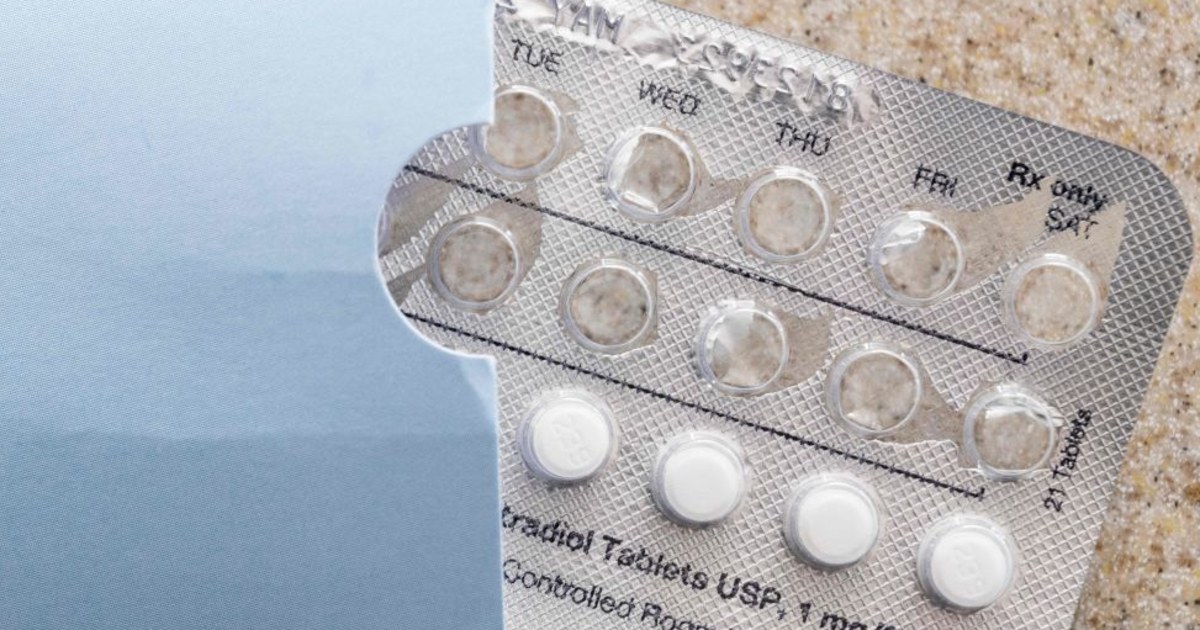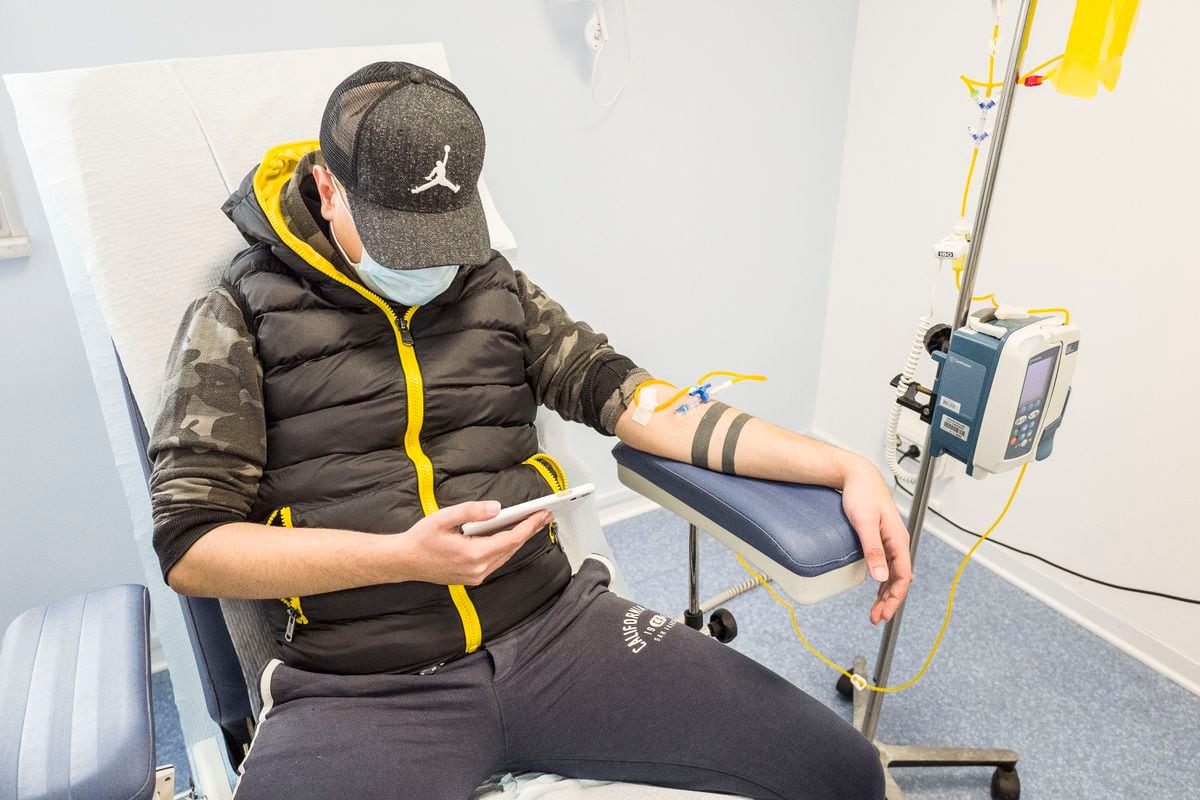By Aria Bendix -
NBC News
For decades, studies have suggested that birth control pills containing estrogen and progesterone—synthetic versions of female hormones—might slightly raise the risk of developing breast cancer.
However, there has been less research on the risk associated with progesterone-only contraceptives, such as intrauterine contraceptive devices (IUDs) and so-called mini-pills.
[Changes in abortion laws cause confusion in the US]
A study published Tuesday in the specialized journal PLOS Medicine found that the risk of developing breast cancer is similar when all of the above options are used, whether they contain one or both hormones.
The risk of a breast cancer diagnosis was 20% to 30%
higher in women who used either a past or recent use of combination pills with the two hormones, progesterone-only pills, or hormone-containing intrauterine devices, compared with that of women. women who did not use any.
This Is Why Walgreens Won't Sell Abortion Pills In 20 States
March 4, 202301:21
Since 2019, 14% of women in the United States between the ages of 15 and 49 have used birth control pills and about 10% have used long-acting contraceptive devices such as IUDs or implants for birth control, according to the Centers for Health. Control and Prevention of Diseases.
"I don't want women to look at this and think, 'Oh no, I have to stop taking the progesterone-only pill,'" said Gillian Reeves, who co-authored the study and heads the Cancer Epidemiology Unit at the University of Oxford.
[These states limit or ban abortion in the US]
"There's an increased risk no matter what you use in terms of hormonal birth control," he explained.
"These new types of [contraceptive methods] haven't been studied very well. What does appear to be no worse."
a relative risk
The results are based on an analysis of prescriptions dispensed to women under 50 in the UK.
Nearly 9,500 of these women were diagnosed with breast cancer between 1996 and 2017, while more than 18,000 did not have the disease.
The researchers combined the results of their analyzes with the results of 12 other studies that examined the risk of progesterone-only contraceptives.
In general, the conclusions were the same, suggesting
that hormonal contraceptives may raise the risk of breast cancer by up to 30%.
I don't want women to look at this and think, 'Oh no, I have to stop taking the progesterone-only pill'"
Gillian Reeves co-author of the study
This risk, however, is relative: the average woman has a 1 in 8 chance of developing breast cancer at some point in her life.
The study suggests that hormonal pregnancy control pills raise those chances slightly.
Among women 35 to 39 years old, Reeves explained, "we estimate that the extra risk is only on the order of 0.2% over a 15-year period, which makes it relatively small."
more research is needed
Dr. Rachel Urrutia, associate professor of obstetrics and gynecology at the University of North Carolina School of Medicine, said the results are consistent with other similar research.
A 2013 analysis by Urrutia found that birth control pills containing the two hormones increased the risk of breast cancer by 8%, she said.
But Urrutia, who was not associated with the new research, said it's hard to conclude with certainty that hormonal contraceptives raise cancer risk without conducting a randomized controlled trial.
"Anything you give a woman that interrupts her normal menstrual cycle [...] could change the risk of hormone-sensitive cancer," said Dr. Gillian Urrutia.Getty Images
"That's difficult in the case of birth control pills because you're not always going to find people willing to be part of a random sample where some take pills and others don't," he stressed.
She added that it's possible that the increased risk of breast cancer in the Reeves et al. study could be linked to other factors.
Diet and family history of breast cancer can play a role as well
, Urrutia said, and the Reeves study didn't adjust for those particular variables, he said.
Reeves' analysis included a 2017 study that similarly identified a 20% breast cancer risk among women currently using or recently using hormonal methods of birth control.
Death penalty proposed for women who have an abortion in South Carolina
March 16, 202303:37
The study followed 1.8 million women in Denmark for more than 10 years on average.
For every 7,690 women using hormonal birth control for one year, there was one additional case of breast cancer relative to women who never used hormonal birth control.
Breast cancer: sensitive to hormones
Reeves pointed out that breast cancer is sensitive to hormones: estrogen and progesterone can activate hormone receptors on cancer cells, which in turn can stimulate cancer cell growth.
[FDA Rules on Plan B Birth Control Pill]
"Anything you give a woman that disrupts her normal menstrual cycle has the potential to change her exposure to these two sex hormones, and in doing so, could change the risk of hormone-sensitive cancer," he said.
Colon cancer: what we should know and how to detect it in time, according to Dr. Mauricio González
Jan 2, 202304:31
Once a person stops using hormonal methods of pregnancy control, Reeves added, the risk of breast cancer decreases, according to most studies.
Urrutia said more research is needed before doctors can advise patients about the long-term effects of birth control methods, even after they stop using them.
Some previous studies have found that hormonal birth control may reduce the risk of other types of cancer, according to the National Cancer Institute.
On that list are
endometrial, ovarian and colorectal cancer.








